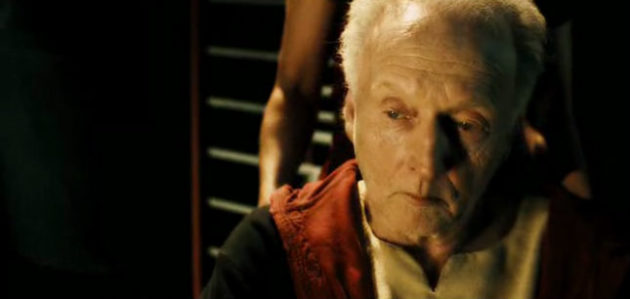In Honor of Obamacare, 6 Healthcare Lessons From the Movies

Today I learned two things. 1) You can never predict SCOTUS and 2) I'm gonna punch the next guy in the eye who calls the Supreme Court of the United States 'SCOTUS.' You don't need to have been swallowed up in the abyss of indifferent bureaucracy to know that our medical system is FUBAR. (Oh, God, enough with the acronyms!) All you need to do is go to the movies. Here are some of cinema's highlights that have made me want to try chewing cardamom seeds and holding a crystal rather than make that $15 copay.
The Hospital (1971), Arthur Hiller, director
Writer Paddy Chayefsky was raging against failing institutions before his masterpiece Network. The Hospital stars George C. Scott as a hospital administrator whose personal life and his place of work are in a race to see which more quickly turn to shambles. It's a movie that will anger up the blood, but worth checking out if for no other reason that to hear the term “zapping” as a euphemism for the sex act.
--
Critical Care (1997), Sidney Lumet, director
Chayefsky's future collaborator on Network got to take his turn tsk-tsking the medical system with Critical Care. The film is primarily a romantic comedy, but it has more than its share of startlingly frank scenes of how emergency care is weighed against ownership of insurance. For those who thought Drive was the first time Albert Brooks played a murderer, check out the below clip.
--
The Rainmaker (1997), Francis Ford Coppola
'97 was not a good year to be in the health insurance business. In The Rainmaker, the evil HMO “Great Benefit” don't just deny Mary Kay Place's son a necessary bone marrow transplant, they're big fat jerks about it in a letter. Memo to self: don't call a grieving mother “stupid, stupid, stupid” when she's got an idealistic young attorney like Matt Damon on their side.
--
Saw VI (2009), Some Gross Guy, director
We can all send letters of gratitude to John Roberts for not spiking Obamacare. Nobody deserves the fate the insurance company employees got in Saw VI, which explained why Jigsaw started torture-punishing his victims in the first place. (They were tools of the bureaucracy that denied ailing folks' necessary care.) And the last thing we need is a Saw reboot.
--
The Death of Mr. Lazarescu (2005), Cristi Puilu, director
Of course, it could be worse. You could live in Romania. This film (presented as a dark comedy in the trailer, but I didn't do much laughing) is a near 3-hour exercise in frustration. Watch in horror as a dying man is shuffled between selfish neighbors, CYA-pencil pushers and disinterested physicians. It's a difficult flick, and, unfortunately, a reminder than no amount of government legislation can force people not to be idiots.
--
Contagion (2011), Steven Soderbergh, director
Woah, woah, let's close this out with a little positivity! Contagion taught us a few things. Number one was STOP TOUCHING YOUR FACE, and number two was that there are some people who are (shock!) employed by the government who will put themselves in harm's way for the betterment of society. Jennifer Ehle's CDC character saves the day, while Kate Winslet's is a martyr. I dunno about you, but every real life doctor I've ever spoken to wishes the nightmare of insurance, malpractice, referrals and general mishigoss would just disappear so they can do what they first set out to do: help people.
Jordan Hoffman is a regular critic at ScreenCrush, columnist at StarTrek.com and contributor to a great number of your favorite websites. He has produced two independent films and was named IFC's Ultimate Film Fanatic of the NorthEast. Follow on Twitter at JHoffman6.

Comments
Does the SCOTUS ruling cover hijinks and hanky-panky? If so, I'd recommend 1982's YOUNG DOCTORS IN LOVE.
Since we are talking about obamacare, how about IOUSA?
I would've figured that John Q would've been on this list, but I get the sense that you only wanted good movies on it
MERAVIGLIOSO Thanks on conto of Condividi…piu remain… …